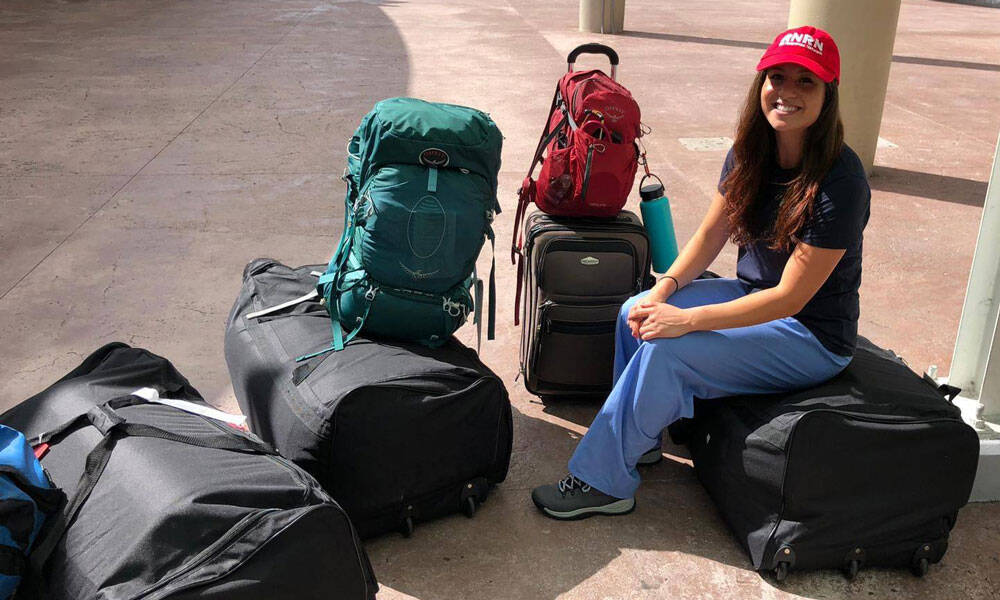
Nurses Group Sends Volunteers to Assist Dorian Survivors
With much of the northern Bahamas devastated by Hurricane Dorian, the Registered Nurse Response Network is filling the on-the-ground need for assistance by staffing mobile clinics and providing medical care.
With Hurricane Dorian leaving destruction in its wake in the Northern Bahamas, the Registered Nurse Response Network is stepping up to help survivors on the islands by flying nurses to the area to help with the immediate medical care of those in need.
RNRN—created as a partnership between National Nurses United, a professional association and union, and the California Nurses Foundation—sends nurses to locales across the world when disaster strikes.
“We coordinate very closely with local agencies to make sure our nurses will be deployed where they’re not a drain on local resources, that they are not displacing local efforts or local staff,” said Alice Grubb, RNRN field coordinator. “We’re there as long as they need, but again, we’re not going to displace the local response. Once they get back up on their feet, we’re not going to need to be there.”
The group sent a team of five nurses earlier this week for a weeklong stint and will send replacement nursing teams over the next two weeks. The nurse volunteers are working in mobile medical units, because most of the permanent medical structures were destroyed.
“It’s basic medical care; it’s mobile clinics,” Grubb said. “The infrastructure on Abaco Islands and Grand Bahama is gone.”
Cathy Kennedy, NNU vice president who helped with the RNRN effort after Hurricane Maria devastated Puerto Rico in 2017, said they have honed the volunteer program over the years to be able to get nurses to locations quickly and efficiently.
“Nurses will immediately email, ‘I can go,’” Kennedy said. “We have to slow them down and say, wait, and make sure it’s safe.”
Part of making sure it’s safe means that RNRN coordinates with locals to make sure volunteering nurses have housing and food rations. RNRN also vets its nurse volunteers to make sure they are physically able to participate in the program. “It’s pretty rough conditions in some places we go,” Kennedy said. “One of the things we don’t want to have happen is, once the nurse gets over there, they become a patient too.”
There are thousands of nurses registered to participate in RNRN, and as soon as a crisis occurs, those able to deploy chime in. Grubb said 850 nurses offered to go to the Bahamas. Based on requests from Bahamas officials, only about a dozen nurses were being sent, as of press time. Grubb said if more nurses are requested later, RNRN will provide them. The network is working alongside International Medical Corps in the Bahamas.
RNRN arranges transportation to and housing at disaster locations, while nurses provide the time commitment to leave work and family. “They are taking time off from work and using their vacation time,” Kennedy said.
Even with the lost time from home and difficult conditions in the disaster areas, Grubb said the nurses find the work rewarding. “When they come back, they say that it is an amazing, transformative experience,” she said. “It takes them back to the core of what they wanted to do with nursing.”
Registered nurse Sarah Price, who brought 80 pounds of medical supplies to Nassau in response to Hurricane Dorian. (via NNU’s Facebook page)





Comments